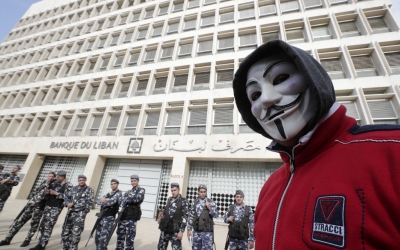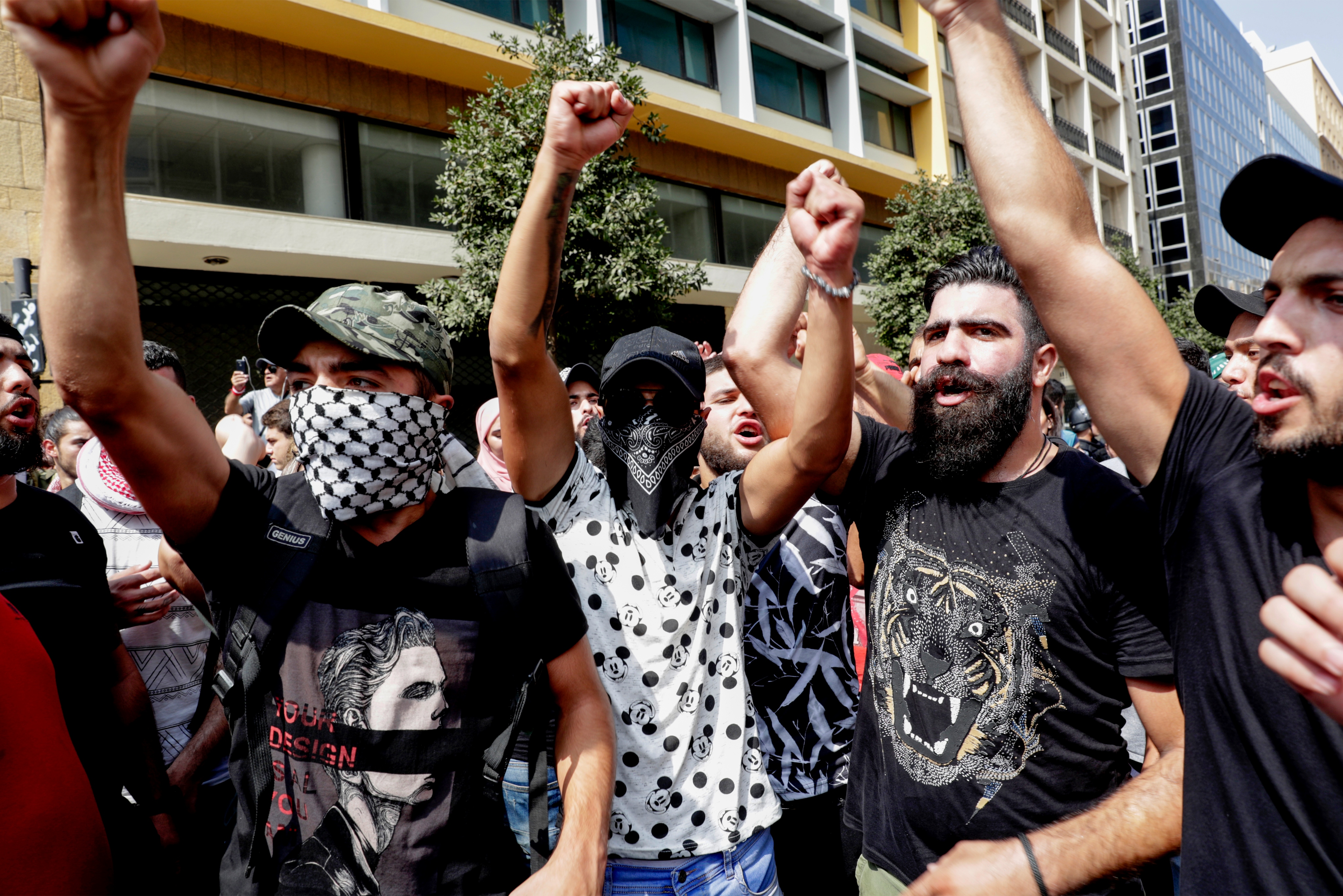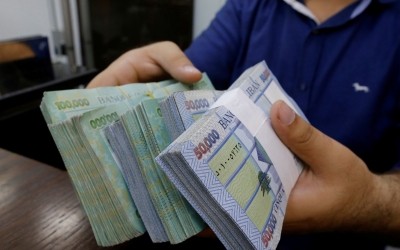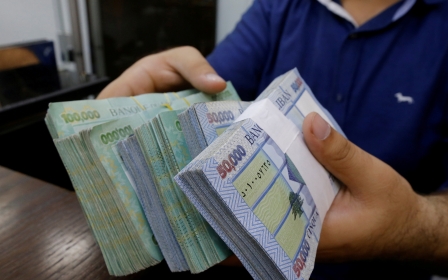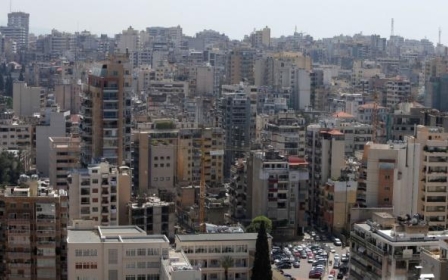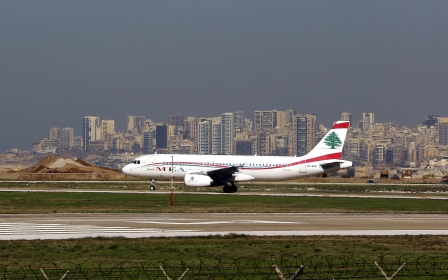'We are not criminals': Lebanese slam slander cases over struggling economy
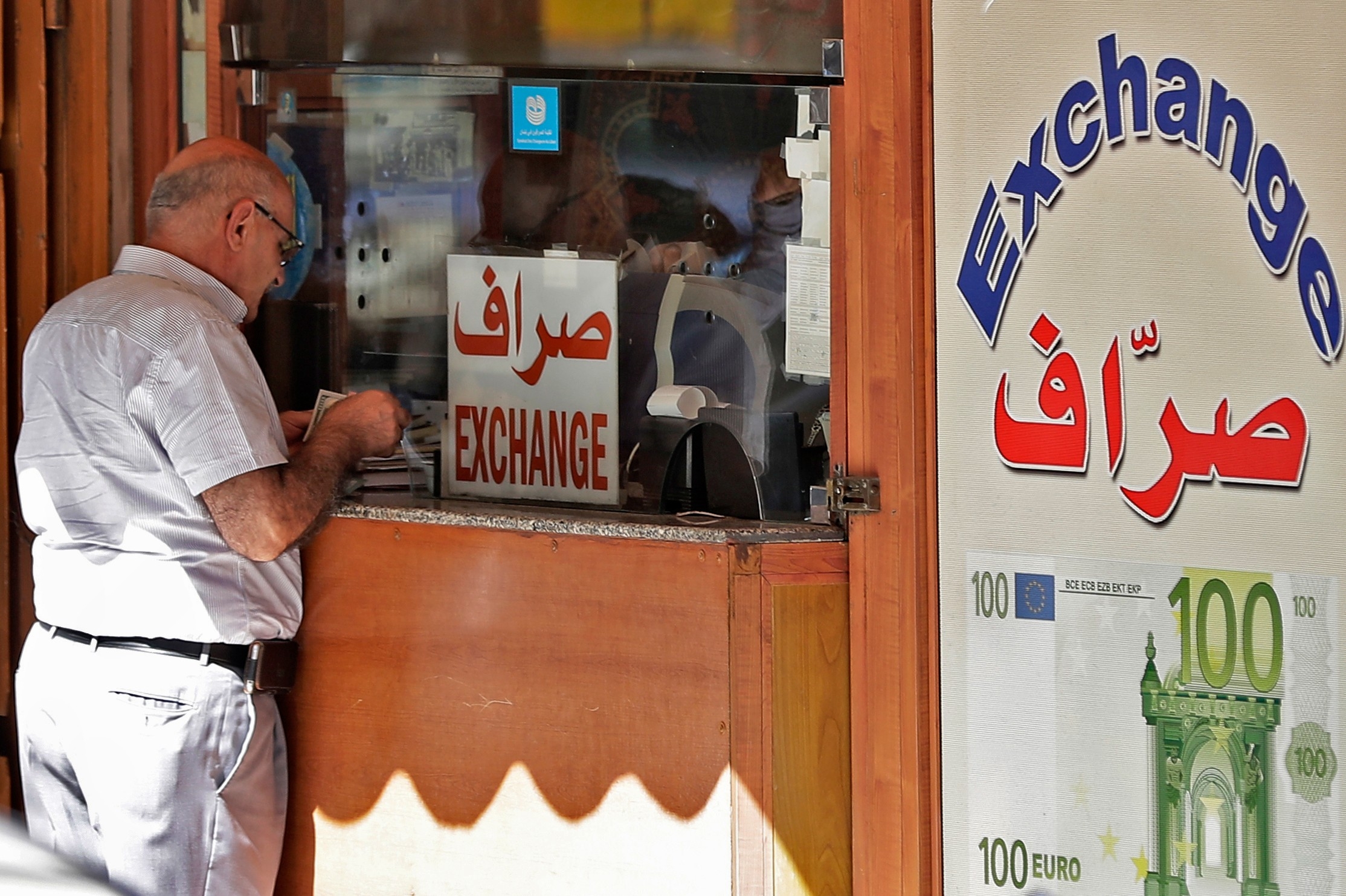
“You will delete your tweet or else.”
Lebanese journalist Amer Shibani did not expect to receive a call from the lawyer of a major bank because of a tweet.
The night before, on 1 October, Shibani was unable to withdraw $600 from his bank for a car payment. In the midst of difficult economic times, Lebanese banks are trying to withhold as many US dollars as possible, as the country struggles to maintain a currency peg with the dollar.
While many banks are refusing to convert Lebanese pounds to US dollars, Shibani was particularly frustrated that he couldn’t withdraw from his account, which was in US dollars. “There were lots of people there waiting and yelling, asking for their money,” recalled Shibani.
Like many disgruntled with the economy, Shibani took a picture of the bank, which showed people waiting to withdraw money, and posted it on social media. “No dollars at SGBL bank,” it read. “[Not] even at the register.”
New MEE newsletter: Jerusalem Dispatch
Sign up to get the latest insights and analysis on Israel-Palestine, alongside Turkey Unpacked and other MEE newsletters
Though the tweet only amassed a few retweets, the journalist received a harrowing call from a lawyer working for Societe Generale de Banque au Liban.
“I said, ‘this is none of your concern, I am a journalist and it is my right to do this’,” Shibani recounted.
The following day, he received a call from the Cybercrimes Bureau of Lebanon's Internal Security Forces.
“I was shocked,” said Shibani.
Lebanon in recent years has been on the receiving end of heavy criticism from human rights organisations and activists for defamation and slander laws within the country’s penal code.
Journalists and activists - and others who have faced such allegations and interrogations over their work or social media posts - fear that this puts whatever is left of Lebanon’s press freedom at risk.
Shibani was slightly more fortunate than others; having worked for the now-defunct Future TV affiliated with Prime Minister Saad Hariri, and now working for its sister platform Mustaqbal Web, he was relieved by the solidarity he received, “including some members of parliament and ministers”.
He was interrogated for three hours at the Cybercrimes Bureau, which has been increasingly labelled as a tool to intimidate those that are critical of the country’s leaders. Independent journalists and activists previously interrogated said they had harrowing experiences there, but Shibani said he was “treated respectfully”.
When released, the bureau “requested” that Shibani delete the tweet. “I asked before leaving, ‘What was the crime I committed?'" Shibani recounted. “They said that there was no formal legal complaint.
“Wow! I felt so important!” he said sarcastically. “But, did all this really happen because of the bank?”
A new 'red line'
In late September, weeks after top Lebanese officials declared the country in a state of “economic emergency”, a few hundred people participated in protests that turned violent in Beirut, as anxiety over the economy continued to worsen in Lebanon.
Many protesters were not shy to call out the government and various high-ranking officials for delivering poor economic policy, corruption, and negligence of public services.
A lawyer affiliated with President Michel Aoun and his Free Patriotic Movement party filed a legal request to the general prosecutor to arrest, prosecute and impose penalties on those producing "fabricated news... against the interests of the Lebanese state", "slandering the Lebanese state and its president, fabricating claims... and influencing people to withdraw their funds [from the bank]”.
Aoun himself said that there are limits to the right to protest and freedom of the press, which do not include “the right to insult” or “spread rumours that harm the nation”.
In turn, more cases were referred to the judiciary – totalling three public cases in a matter of two weeks.
One of them was The Economist, after a group of lawyers accused the British magazine of damaging Lebanon’s reputation, economic well-being and desecrating the country's flag with an article entitled “Broke in Beirut”.
The feature article was accompanied by an illustration showing Lebanon’s famous cedar tree falling off the red and white background of the country's flag - which, lawyers argued, showed contempt for both national icons.
“Can anyone accept their country’s cedar tree falling apart in front of the whole world?” Rami Itani, one of the lawyers, told local television channel Lebanon Broadcasting Corporation.
“Nobody denies that we are going through an economic crisis, but this doesn’t give people the right to mourn for the Lebanese economy.”
The lawyers called for the magazine edition to be banned from circulation. The Economist’s editors did not respond to requests for comment on the case.
Lebanese legal expert Elham Barjas said that this particular case is surprising, setting a negative precedent for what she feels ought to be the duty of a lawyer – to protect the public through the rule of law.
“For five lawyers to join together, to raise a legal complaint on a media platform or a website, claiming that they insulted Lebanon’s image and symbolism… this is an absurdity of what a lawyer should be.”
Barjas also said these incidents expose how problematic defamation and slander laws are in Lebanon, where the number of cases have “skyrocketed” since 2016.
The third case, arguably the most controversial, involved Ali Walaa Mazloum, a notorious critic of Hezbollah from the Bekaa region. Mazloum has a history of controversy with the party, including spreading photos of alleged secret prisons.
In a recent social media post, Mazloun accused high-ranking Hezbollah security official Wafic Safa of economic corruption in a province that is already economically deprived. Safa’s lawyer was quick to file a legal complaint.
Safa is the main coordinator between the party and security officials, and is one of three high-ranking Hezbollah officials to be sanctioned by the United States in July for having allegedly “exploited” Lebanon’s border crossings and ports to “smuggle contraband and facilitate travel” for Hezbollah and “draining valuable import duties and revenue” from the Lebanese state.
Mazloum confirmed to MEE that a case had been filed against him, but declined to comment further on the matter.
Critical voices
Lebanese watchdog organisations, including SKeyes Center for Media and Cultural Freedom, have cited some 260 defamation and slander cases over the past few years, most of which involve government officials and some corporate leaders.
Some fear that things may take a turn for the worse since banks and the national economy are now considered to be victims of slander. Barjas says that while she anticipates further self-censorship in Lebanon from journalists, artists and the general public, she doesn’t feel these cases will stifle existing panic and discussion online.
“I don’t think arrests here and there are going to intimidate people from talking.”
With Lebanon’s economy in the balance, and the country scrambling to implement economic reforms to unlock $11 billion in loans from the international community, discussion and coverage about the economy and potential misuse of public funds appear to be far from over.
'We [ordinary people] aren’t creating these crises …they have to admit there is an economic crisis and to take action'
- Amer Shibani, journalist
“These criticisms need to happen,” Barjas said. “[It’s important to] talk about who needs to be held accountable for economic corruption… and other issues.”
While many of the cases are particular to activists and journalists who are critical of the entire government, Shibani said he wasn’t opposed to the whole establishment, but expressed his “support and solidarity” with all those whose free speech is being stifled.
“We are not insulting [anyone],” he said, urging the government to mobilise on the economy instead. “I feel that some are living in an imaginary world.
“Look at what’s happening on the ground, talk to ordinary citizens,” Shibani added. “We [ordinary people] aren’t creating these crises …they have to admit there is an economic crisis and to take action.”
Middle East Eye delivers independent and unrivalled coverage and analysis of the Middle East, North Africa and beyond. To learn more about republishing this content and the associated fees, please fill out this form. More about MEE can be found here.


